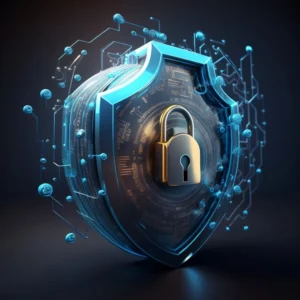Table of Contents
Key Takeaways:
- Certifications provide essential theoretical knowledge, industry recognition, and can increase earning potential by validating skills to employers.
- Internships offer critical hands-on experience, real-world problem solving, and workplace collaboration, bridging the gap between learning and actual job readiness.
- Combining certifications with internship experience creates the strongest profile for cybersecurity roles, enhancing employability and career advancement.
- Cybersecurity internships develop soft skills like communication, teamwork, and adaptability, which certifications alone cannot teach.
- Programs like Entri’s Cybersecurity Course with hybrid learning and mandatory internship deliver comprehensive training and placement support, setting learners up for success in a competitive market.
Introduction: Why Cybersecurity Internships Outweigh Certifications
In today’s fast-evolving digital landscape, cybersecurity skills need to go beyond textbooks and exams. Certifications validate your theoretical knowledge, but they rarely prepare you for the real, high-pressure environment of cybersecurity operations. That’s where internships come in. Internships immerse you in real-time threat detection, risk mitigation, and collaborative problem-solving. Unlike static certifications, they build your instincts, confidence, and practical skill set.
Entri’s hybrid cybersecurity course uniquely integrates a one-month mandatory internship into their 9-month curriculum, combining comprehensive classroom learning with real industry exposure. This fusion prepares learners to confidently tackle live cybersecurity challenges and fosters employability with guaranteed placement support.
Beyond the Certificate: Real Skills Through Real Experience
While cybersecurity certifications such as CompTIA Security+, CEH, and CISSP certify theoretical knowledge and individual skills, they often miss out on the practical challenges, unpredictability, and teamwork that characterize real-world cybersecurity roles. Internships provide a valuable contrast: they are immersive learning experiences where knowledge meets application under real conditions.
-
Hands-On Tool Experience: Interns get to operate security tools like Wireshark for network analysis, Kali Linux for penetration testing, Nessus for vulnerability scanning, and Security Information and Event Management (SIEM) systems to monitor threats. Such hands-on practice is rarely fully included in certification exams.
-
Incident Response and Problem Solving: Interns face real or simulated attacks where they must detect, analyze, and respond to threats in a timely manner. This hones decision-making and critical thinking under pressure, a skill no certification can adequately simulate.
-
Workplace Communication and Collaboration: Cybersecurity doesn’t happen in isolation. Internships expose learners to cross-team coordination with IT support, management, and other cybersecurity pros. Interns learn to report incidents, document findings, and present risk assessments, building invaluable communication skills.
-
Exposure to Dynamic Environments: Internships immerse students into the rapid evolution of cyber threats and defenses, requiring adaptability and continuous learning—a far cry from the static syllabus of certifications.
Tip: Treat internships as a ‘boot camp’ for the cyber battlefield, where each challenge builds your resilience, technical mastery, and professional maturity.
Enroll in Entri’s AI-Powered Cybersecurity course now!
Why Internships Create More Value Than Certifications Alone
While certifications validate technical prowess and knowledge, internships offer a 360-degree development experience that certifications alone cannot match. Here’s why internships provide more tangible, career-transforming value:
-
Real-World Problem Solving: Internships train you to handle unpredictable threats, deploy defense mechanisms, and prioritize responses—skills critical for operational cybersecurity roles.
-
Professional Networking & Mentoring: Interns interact daily with seasoned cybersecurity experts and IT teams, forging relationships that often evolve into career opportunities, mentorship, and job referrals.
-
Employer Preference & Job Readiness: Most employers increasingly prefer candidates who have demonstrated the ability to handle real cybersecurity environments, as evidenced by internship experience. It’s a proven indicator of readiness beyond the theoretical.
-
Career Exploration: Cybersecurity covers many niches—ethical hacking, forensics, compliance, threat intelligence, and more. Internships allow you to explore these areas hands-on, helping refine your specialization and career goals before committing.
-
Confidence and Competence: Internships boost your confidence in applying complex cybersecurity concepts and navigating workplace dynamics, an assurance that sets you apart in interviews and on the job.
Tips to Maximize Your Cybersecurity Internship Experience
Maximizing the value of your cybersecurity internship means more than just showing up; it requires proactive engagement and a strategic mindset:
-
Seek Diverse Projects: Volunteer for various cybersecurity tasks—penetration testing, incident logging, vulnerability assessments—to broaden your skill set and avoid monotony.
-
Actively Request Feedback: Regularly ask supervisors and mentors for constructive feedback to identify areas for improvement and strengthen your professional growth.
-
Build a Skills Portfolio: Document your projects, tools used, challenges faced, and outcomes achieved. This tangible portfolio can impress recruiters and prove your real-world capabilities.
-
Develop Soft Skills: Use your internship to sharpen communication, teamwork, and technical writing skills—a triad critical to cybersecurity roles but not emphasized in certifications.
-
Network Within the Organization: Build relationships with cybersecurity professionals, IT staff, and management. These connections could lead to job recommendations or mentorship opportunities.
-
Stay Curious and Learn Beyond Your Scope: Cybersecurity is vast and ever-evolving. Explore new tools, frameworks, or certifications even during your internship to stay ahead.
-
Reflect on Career Goals: Use immersive internship experience to gauge which cybersecurity domain excites you most—ethical hacking, compliance, digital forensics, etc.—and plan your future learning accordingly.
Common Cybersecurity Certifications vs What Internships Teach
When starting a career in cybersecurity, many learners debate whether to pursue certifications, internships, or both. Each path offers unique benefits, but understanding what each provides can clarify how they complement each other for a successful career.
| Aspect | Cybersecurity Certifications | Cybersecurity Internships |
|---|---|---|
| Purpose | Validate theoretical knowledge and specialized skills in domains like ethical hacking, network defense, or risk management. | Provide hands-on experience applying cybersecurity concepts in real environments and situations. |
| Typical Certifications | CompTIA Security+, Certified Ethical Hacker (CEH), CISSP, OSCP | No formal certification, but practical proof of competence in job roles. |
| Learning Focus | Structured study of concepts, frameworks (e.g., NIST, ISO), and tool usage with exam-based validation. | Immersive exposure to live systems, incident response, use of industry tools, and collaboration. |
| Time Required | Usually weeks to a few months; flexible and self-paced. | Weeks to months; full-time engagement with real-time work pressure. |
| Cost | Varies from a few hundred to a few thousand dollars. | Usually unpaid or stipend-based; valuable for experience. |
| Skill Development | Focus on knowledge, theory, and some simulated labs; less emphasis on soft skills. | Develops practical skills, teamwork, communication, and problem-solving. |
| Industry Value | Recognized credential enhancing resume visibility and credibility. | Demonstrable proof of job readiness highly prized by employers. |
| Career Impact | Opens doors to interviews but rarely alone guarantees job placement. | Often leads directly to job offers or highly increases employability. |
| Limitation | May not prepare candidates for nuanced, dynamic challenges at work. | Experience varies by quality of mentorship and organizational culture. |
Why You Need Both for a Winning Profile
Certifications provide the foundation—validating your understanding of security principles and protocols required by industry standards. They’re especially crucial to clear HR filters and demonstrate your commitment.
Internships, however, place you in the driver’s seat, offering:
-
Real-time problem solving under pressure,
-
Learning collaboration and communication in cross-functional teams,
-
Adapting quickly to evolving threats in realistic environments,
-
Building professional networks and credibility.
Together, certifications plus internships create a complete package that most cybersecurity employers seek: strong theoretical knowledge backed by proven, practical skills and experience.
Entri’s Cybersecurity Course: Hybrid Learning Meets Hands-On Training
In today’s rapidly evolving cyber threat landscape, theoretical knowledge alone is no longer sufficient. What sets Entri’s Cybersecurity Course apart is its cutting-edge hybrid learning model combined with a mandatory internship component— a powerful formula that equips students with both the deep knowledge and practical skills required to thrive in the industry.
-
Comprehensive Curriculum Covering Core and Advanced Concepts
The 9-month program meticulously covers the full cybersecurity spectrum, starting with foundational principles like the CIA Triad (Confidentiality, Integrity, Availability), authentication, authorization, and moving into specialized topics such as:
-
-
Ethical hacking and penetration testing—learning hacking phases, types, and methodologies (NIST, ISSAF, OWASP).
-
Network security fundamentals, including TCP/IP, OSI model, secure protocols (TLS, HTTPS, SSH), and network traffic analysis using tools like Wireshark.
-
Malware threats, ransomware, phishing, and how to utilize threat intelligence frameworks like MITRE ATT&CK and Cyber Kill Chain.
-
Systems knowledge with Windows and Linux commands, lab configurations, security logging, and monitoring basics.
-
Cloud, mobile, and IoT security essentials.
-
Cyber forensics, digital investigations, and compliance with security standards (ISO 27001, NIST).
-
The innovative integration of AI in cybersecurity detection and response.
-
Every module is paired with hands-on labs, assignments, and mini projects to reinforce learning and simulate real-world scenarios.
-
The Power of the 1-Month Mandatory Internship
Entri truly recognizes the importance of experience. By mandating a one-month internship, the course ensures learners don’t just absorb information passively—they apply skills to real business environments where cyber threats are actively addressed. This experience:
-
-
Bridges the gap between theory and practice.
-
Builds confidence in using industry-standard tools like Metasploit, Nessus, Burp Suite, and others.
-
Facilitates collaboration with cybersecurity experts and IT teams.
-
Provides invaluable workplace skills including incident reporting, teamwork, communication, and strategic response.
-
Helps clarify career preferences and specialization based on exposure to various cybersecurity domains.
-
-
Hybrid Learning: Flexibility and High Engagement
The course adopts a hybrid delivery mode: interactive online lectures with AI-powered learning, live mentor sessions for real-time problem solving, and hands-on offline labs. This structure supports diverse learning styles and helps maintain consistent progress while balancing flexibility—ideal for freshers, working professionals, and career switchers.
-
Credible Certifications and Guaranteed Placements
On course completion, students earn national (NSDC) and international certifications (Illinois Tech), elevating their credibility in the job market. Entri’s dedicated placement cell guarantees job support, providing mentoring, interview preparation, and job referrals—making it a launchpad for a secure, rewarding cybersecurity career.
Why This Course is the Key to a Bright and Secured Future
-
Industry-Relevant Expertise: Comprehensive curriculum aligned with real-world needs prepares you for current and upcoming cyber threats.
-
Confidence through Experience: Internship experience backed by expert mentors ensures you can confidently tackle workplace challenges.
-
Career Acceleration: Entri’s placement guarantee and mentorship fast-track your entry into the workforce.
-
Lifelong Learning Foundation: The course instills a mindset geared for continuous adaptation—vital in the ever-changing cybersecurity field.
-
Versatility: Skills learned apply across sectors—finance, healthcare, government, IT—broadening your career options.
Entri’s course isn’t just learning; it’s a career transformation journey that takes you from beginner to job-ready cybersecurity professional, securing your future in a field that is critical, dynamic, and full of opportunity.
Conclusion: Internships Are the Ultimate Launchpad for Your Cybersecurity Career
The rapid evolution of cyber threats demands more than theoretical knowledge—it requires hands-on expertise, real-world problem-solving skills, and confidence gained only through practical experience. While certifications are important milestones, cybersecurity internships provide an irreplaceable training ground that gives you an undeniable edge in the job market.
Entri’s hybrid cybersecurity course offering 9 months of learning plus a mandatory 1-month internship is a proven formula for success, blending deep technical training with real industry exposure and guaranteed job placements. This course not only teaches you what to do but ensures you’ve done it, making you fully prepared for the demands of a cybersecurity role.
Take the next step to secure your future—enrol in Entri’s course today, and turn your cybersecurity ambitions into a thriving, rewarding career.
|
Related Articles |
|
| An Introduction to Cybersecurity Ethics | |
Frequently Asked Questions
Can certifications alone get me a job in cybersecurity?
Certifications are valuable but rarely sufficient alone. Practical internship experience dramatically enhances job prospects.
How long should a cybersecurity internship be?
Internships typically last 1-3 months; Entri’s 1-month mandatory internship offers focused, impactful experience.
What tasks will I perform during a cybersecurity internship?
Expect network monitoring, vulnerability scanning, incident response drills, and security audits—all under expert supervision.
Does Entri’s course include job placement?
Yes, Entri guarantees placement for eligible students, backed by comprehensive mentorship and career support.
Is Entri’s cybersecurity course suitable for beginners?
Absolutely. The course caters to freshers and career switchers with guided instruction and practical exposure.















